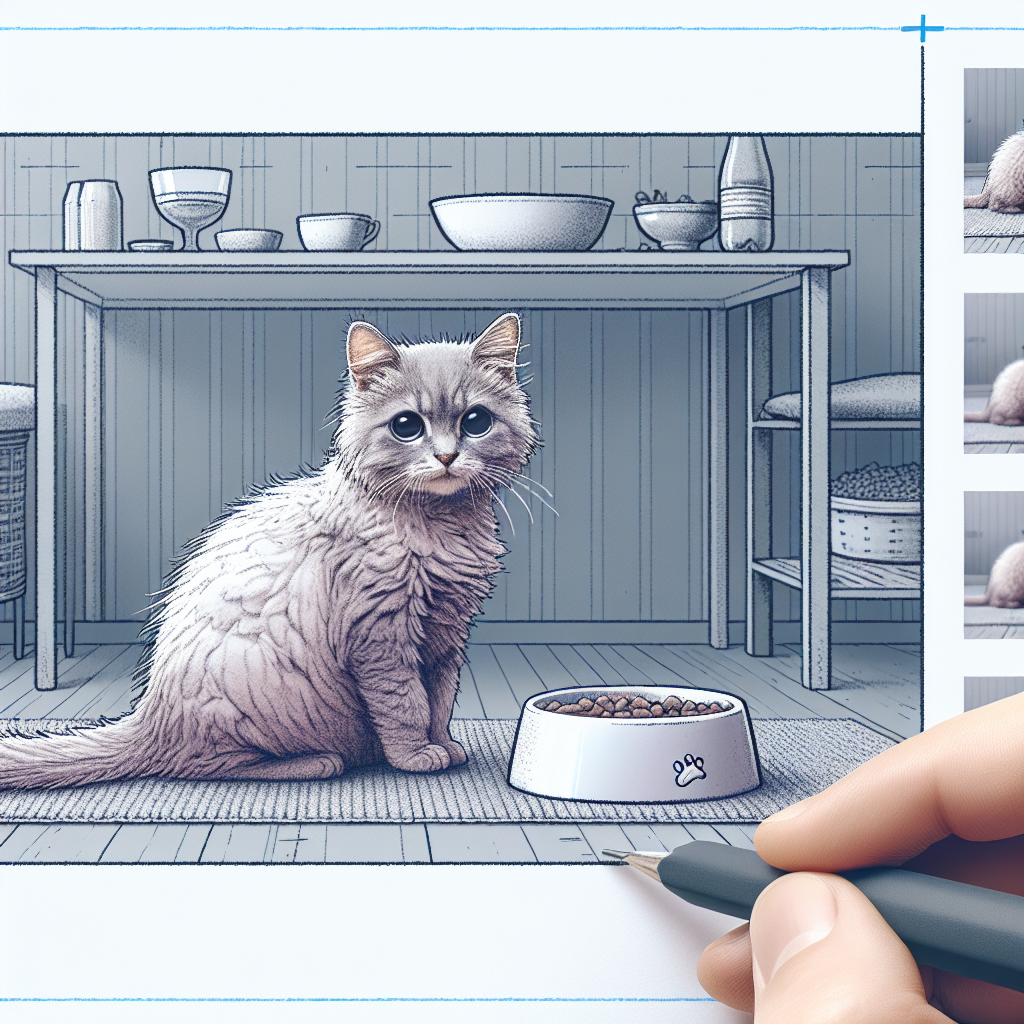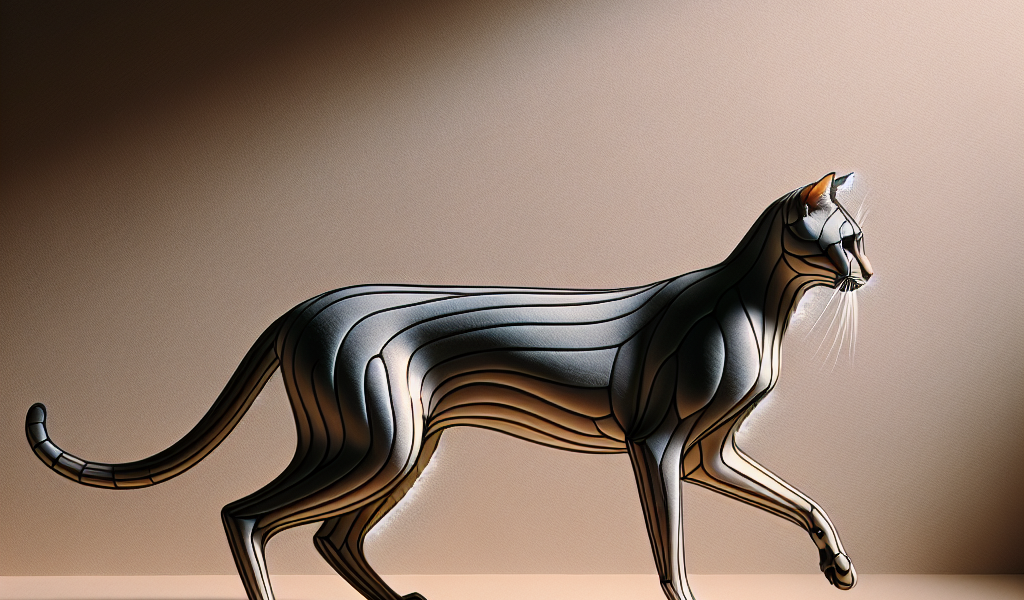Understanding What Causes Weight Loss in Cats
Do you have a feline friend that’s shedding pounds faster than usual? Amidst the hustle of humans trying to lose weight quickly and efficiently, it might be disconcerting to see your pet cat doing the same – and perhaps at an alarming rate. In this article, “Understanding What Causes Weight Loss in Cats” you will find enlightening information about what causes this peculiar phenomenon. This article is intended to clarify any confusion and concerns you might have about your feline’s unusual weight loss, providing you with knowledge and insight to ensure your beloved pet remains healthy and happy.
Understanding Feline Nutrition
If you’re a cat owner, it’s essential that you understand the basics of feline nutrition in order to maintain your pet’s health. Cats, just like humans, need a balanced diet to stay healthy and active. However, their dietary requirements are significantly different from humans or even other pets like dogs.
Importance of Balanced Nutrition in Cats
Cats are obligate carnivores, meaning they need certain nutrients that are found only in animal products, especially proteins and fats. A balanced diet provides all the essential nutrients necessary for your cat’s overall health and specific life stage needs, from kittenhood to senior years.
Common Nutritional Requirements for Cats
Cats not only require a high amount of protein, but also certain other nutritional elements such as taurine, an essential amino acid; arachidonic acid, a fatty acid; and vitamins A, D, and B12. A lack of these essential nutrients can lead to a wide range of health problems, so a meat-based diet is best to meet these needs.
Misinformation About Cat Diets
There’s a lot of misinformation about cat diets, like the concept of a vegetarian or vegan diet for cats. While humans and some animals can adapt to such diets, doing so poses severe health risks for cats since they require key nutrients from meat sources. Always consult with a vet or pet nutrition expert when deciding what to feed your cat.
Recognizing Weight Loss in Cats
Weight loss can be a serious health issue in cats, and it’s important to take note if your cat starts losing weight rapidly or without an apparent reason. A marginal fluctuation is normal, but a stark decrease can be indicative of a health problem
Changes in Body Shape and Size
Your cat’s body size and shape can give you clues about their health. Pay attention if your cat starts looking slimmer, its belly tucks in more than usual, or there’s a noticeable decrease in its muscle mass.
Physical Symptoms of Weight Loss
Physical symptoms like dull coat, lethargy, vomiting, diarrhea, and decreased muscle mass can indicate weight loss. Often, these are accompanied by a decrease in appetite or an increased appetite with no weight gain.
Behavioral Symptoms of Weight Loss
Behavioral symptoms like increased aggression or changes in social interaction could also indicate weight loss. If your cat is more aloof than usual or if it’s hiding, it’s worth checking if it has lost weight.

Common Causes of Weight Loss in Cats
Weight loss in cats can occur due to a variety of reasons, from diseases to stress. Identifying the root cause is crucial for effective treatment.
Gastrointestinal Problems
Disorders like inflammatory bowel disease or pancreatitis can lead to significant weight loss in cats. Digestive issues can make it difficult for cats to absorb and use nutrients from their food, leading to weight loss and muscle wasting.
Metabolic or Endocrine Disorders
Metabolic disorders like renal failure, liver disease or an overactive thyroid (hyperthyroidism), and endocrine disorders like diabetes can be reasons behind your feline friend’s unexpected weight loss.
Cancer and Other Serious Illnesses
Cancer, heart disease, and other serious health issues can cause your cat to lose weight rapidly. These often involve other severe symptoms and require immediate medical attention.
Age-Related Issues
As cats age, they are more prone to diseases and conditions that can result in weight loss. Also, older cats might not absorb nutrients from their diet as efficiently as when they were younger.
Dental Disease
Dental diseases can lead to weight loss as well. If your cat isn’t eating properly due to a toothache or other dental issue, it can result in weight loss due to reduced food intake.
Gastrointestinal Problems and Weight Loss
Digestive or gastrointestinal problems are common causes of weight loss in cats.
Food Intolerance or Allergies
Your cat might be intolerant or allergic to certain food ingredients, causing digestive problems, vomiting, diarrhea, and subsequent weight loss.
Inflammation of the Gastrointestinal Tract
Conditions like pancreatitis, colitis, or inflammatory bowel disease can cause inflammation in your cat’s digestive tract, leading to malabsorption of nutrients and eventually weight loss.
Parasites Impact on Weight
Parasites such as worms can rob your cat of vital nutrients, causing weight loss. Regular deworming is important to prevent this issue.

Metabolic or Endocrine Disorders Leading to Weight Loss
Metabolic or endocrine disorders can significantly affect your cat’s weight as they interfere with various bodily functions.
Hyperthyroidism in Cats
Hyperthyroidism is a common condition in older cats where the thyroid glands produce excessive amounts of thyroid hormones, often leading to weight loss despite an increase in appetite.
Diabetes Mellitus Influence on Weight
Diabetes mellitus, predominantly seen in overweight or obese cats, often leads to weight loss as the cat’s body cannot properly use glucose, a primary energy source.
Kidney Disease and Chronic Dehydration
Kidney disease is another common issue in cats, especially elderly ones, where the kidneys fail to function correctly, hence leading to weight loss along with chronic dehydration.
Impact of Cancer and Other Serious Illnesses
In cats, as in humans, cancer and other chronic conditions can have a devastating impact on weight and overall health.
Lymphoma and Other Types of Cancer
Lymphoma, a common type of cancer in cats, often leads to a rapid decrease in weight. Other types of cancer can also result in weight loss.
Chronic Conditions Causing Weight Loss
Long-term health conditions such as chronic kidney disease, liver failure, and diabetes can also cause weight loss in cats.
Immunodeficiency Diseases
Immunodeficiency diseases can leave cats more susceptible to infections, which can lead to weight loss.

Age-Related Causes of Weight Loss
As the saying goes, age isn’t just a number, and this is especially true for cats. Age brings various health conditions, and weight loss is a common issue.
Senior Cats and Weight Changes
As cats age, their metabolism slows down, and their dietary needs change. This can lead to changes in weight, often resulting in weight loss.
Muscle Wasting in Elderly Cats
Muscle wasting, or sarcopenia, is a common condition in older cats, leading to significant weight loss.
Decreased Appetite in Old Age
Changes in tasting ability, digestion, and nutrient absorption in older cats can lead to a decreased appetite and consequent weight loss.
Dental Disease and Weight Loss in Cats
Cats with dental disease often suffer from weight loss due to the pain and discomfort caused by dental problems.
Oral Pain Causing Reduced Food Intake
Dental issues like gingivitis, periodontitis, and tooth decay can cause significant oral pain, affecting your cat’s ability to eat and thus leading to weight loss.
Periodontal Disease Symptoms
Signs like bad breath, inflamed gums, and loose teeth are indicative of periodontal disease, which can lead to weight loss in cats.
Influence of Tooth Loss on Eating Habits
If your cat loses one or more teeth, it might impact their ability to consume and chew food, leading to weight loss.

Stress and Anxiety as Weight Loss Factors
It’s not just physical conditions that can lead to weight loss in cats. Stress and anxiety can also play a significant role in weight loss in pets.
Signs of Stress in Cats
Changes in behavior, not using the litter box consistently, or grooming excessively can be signs that your cat is stressed or anxious.
How Anxiety Affects Eating Habits
Much like humans, cats can experience appetite changes due to stress or anxiety. This can lead to either weight loss or weight gain, depending on how your cat’s eating habits change.
Environmental Changes Causing Weight Loss
Changes in the environment such as a move to a new home, addition of a new family member or pet, or even rearranged furniture can stress your cat, leading to eating disorders and weight loss.
Treatment and Prevention Methods
Weight loss in cats is a concern but, don’t worry, there are ways to treat and prevent it.
Correcting Nutritional Deficiencies
If your cat’s weight loss is due to dietary deficiencies, a diet change or addition of supplements can help rectify the problem.
Medication and Therapies for Underlying Causes
When weight loss is due to diseases or conditions like hyperthyroidism, dental diseases, or cancer, your vet will recommend appropriate treatments and medications.
Strategies for Stress and Anxiety Reduction
Creating a peaceful environment, using stress relief products, and providing lots of love and attention can help reduce your cat’s anxiety, which in turn, can help with the weight issue.
Remember, regular vet visits and constant monitoring of your cat’s health is the best way to ensure they live a long, happy life.


Pingback: Understanding When To Worry About Weight Loss In Cats